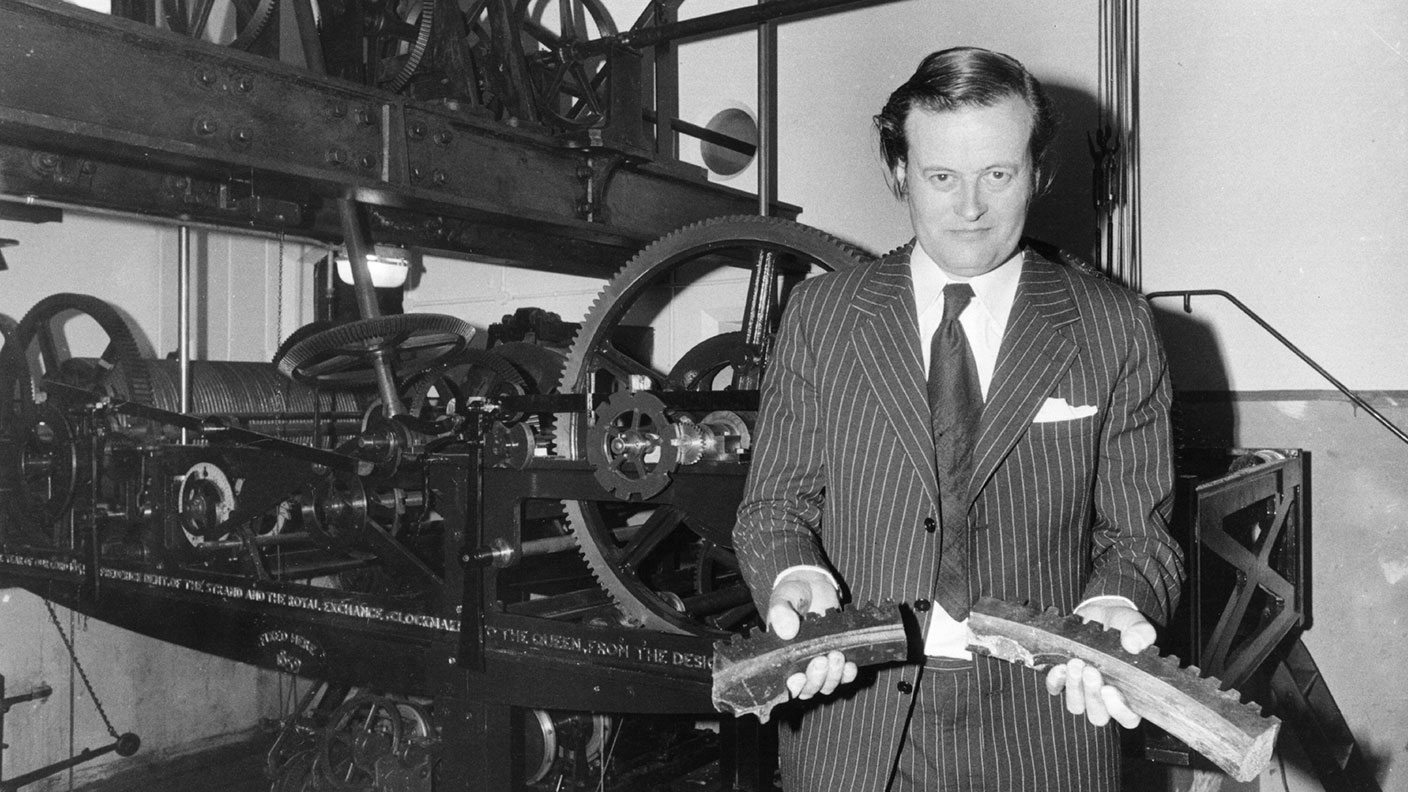
Get the latest financial news, insights and expert analysis from our award-winning MoneyWeek team, to help you understand what really matters when it comes to your finances.
You are now subscribed
Your newsletter sign-up was successful
Want to add more newsletters?

Twice daily
MoneyWeek
Get the latest financial news, insights and expert analysis from our award-winning MoneyWeek team, to help you understand what really matters when it comes to your finances.

Four times a week
Look After My Bills
Sign up to our free money-saving newsletter, filled with the latest news and expert advice to help you find the best tips and deals for managing your bills. Start saving today!
The Great Westminster Clock, AKA Big Ben*, designed by Edmund Beckett Denison, has been one of London's most famous sights for over 100 years. Its familiar chimes ring out on the quarter hour, and every hour it strikes with extraordinary accuracy.
The secret to its great accuracy is its "double three-legged gravity escapement", which isolates the pendulum from external influences, such as the effect of wind on its heavy hands – each minute hand weighs 100kg, and each hour hand weighs 300kg. At five tonnes, the clock was and remains one of the largest mechanical clocks in the world.
It was completed in 1854, at a cost of £2,500. However, the tower to house it wasn't ready for an other five years. So it wasn't until 31 May 1859, that the clock finally began ticking. The bell came even later that didn't sound until 11 July. But it soon cracked, and remained silent for four years.
MoneyWeek
Subscribe to MoneyWeek today and get your first six magazine issues absolutely FREE

Sign up to Money Morning
Don't miss the latest investment and personal finances news, market analysis, plus money-saving tips with our free twice-daily newsletter
Don't miss the latest investment and personal finances news, market analysis, plus money-saving tips with our free twice-daily newsletter
After that, all went well for over a century, until around 3:45AM on this day in 1976. A policeman on duty in the Palace of Westminster heard a "thud". He called the engineers, who raced up to the clock room. When they got there, they were met with a scene of complete devastation. There was metal everywhere on the floor, embedded in the walls and punching holes in the ceiling. It looked like the clock was ruined.
Fatigue in the century-old metal had caused a sudden fracture in the chiming mechanism, which sent the flywheel and huge chunks of metal spinning around the clockroom, smashing the clock to pieces. Big Ben was silenced.
Local clockmakers Thwaites & Reed who had tendered unsuccessfully to build the original clock were called in to repair it. And after nine months of work, the clock was restarted on 9 May 1977.
* This isn't QI. We all know that technically, the clock isn't officially called Big Ben. That's the bell (though officially, it's not even the bell – Parliament calls that "The Great Bell"). The clock is just called "The Great Clock". The only thing with a name is the tower, which was recently named Elizabeth Tower. But even that's still Big Ben to most people.
Get the latest financial news, insights and expert analysis from our award-winning MoneyWeek team, to help you understand what really matters when it comes to your finances.

-
 Can mining stocks deliver golden gains?
Can mining stocks deliver golden gains?With gold and silver prices having outperformed the stock markets last year, mining stocks can be an effective, if volatile, means of gaining exposure
-
 8 ways the ‘sandwich generation’ can protect wealth
8 ways the ‘sandwich generation’ can protect wealthPeople squeezed between caring for ageing parents and adult children or younger grandchildren – known as the ‘sandwich generation’ – are at risk of neglecting their own financial planning. Here’s how to protect yourself and your loved ones’ wealth.
